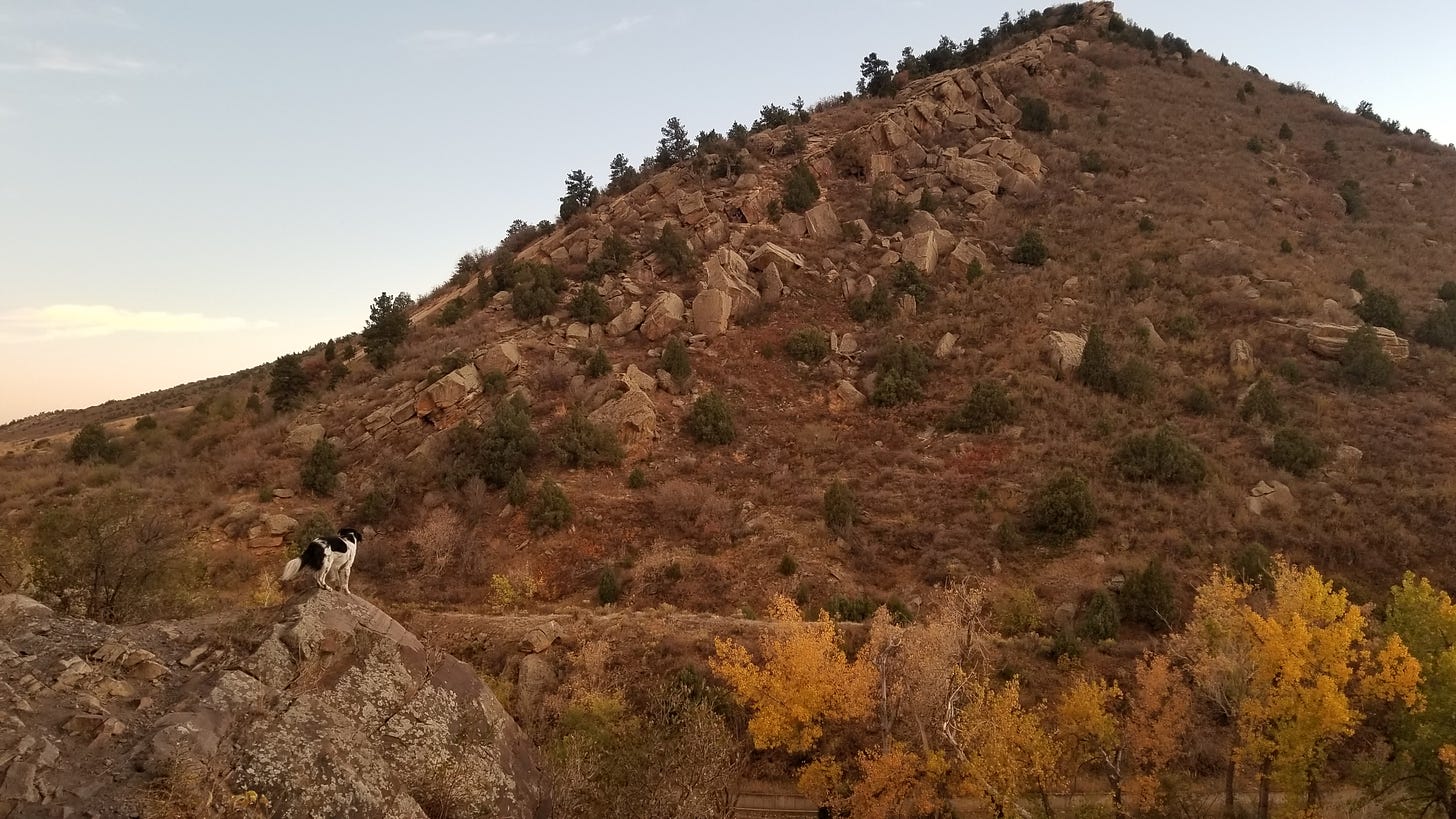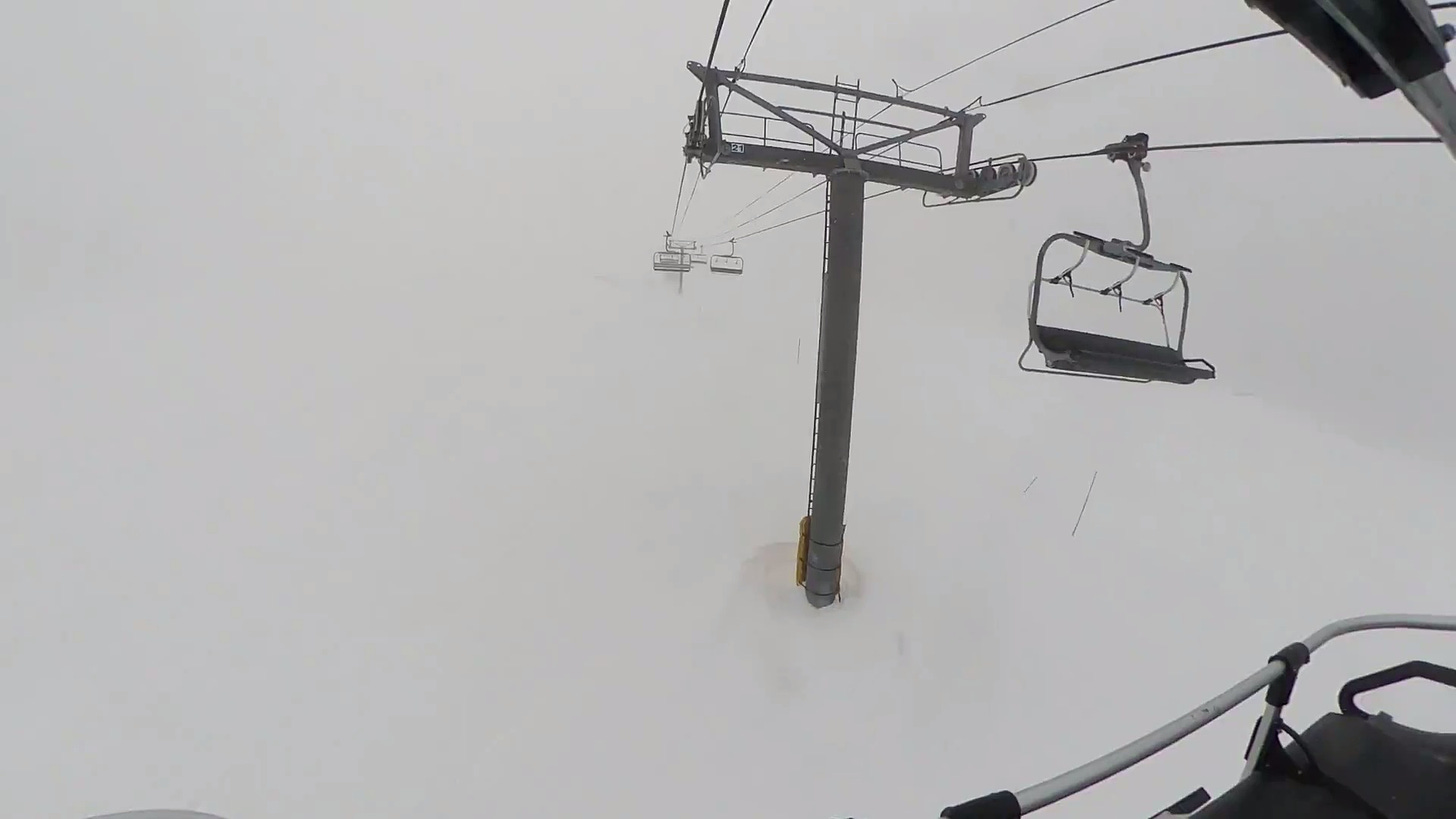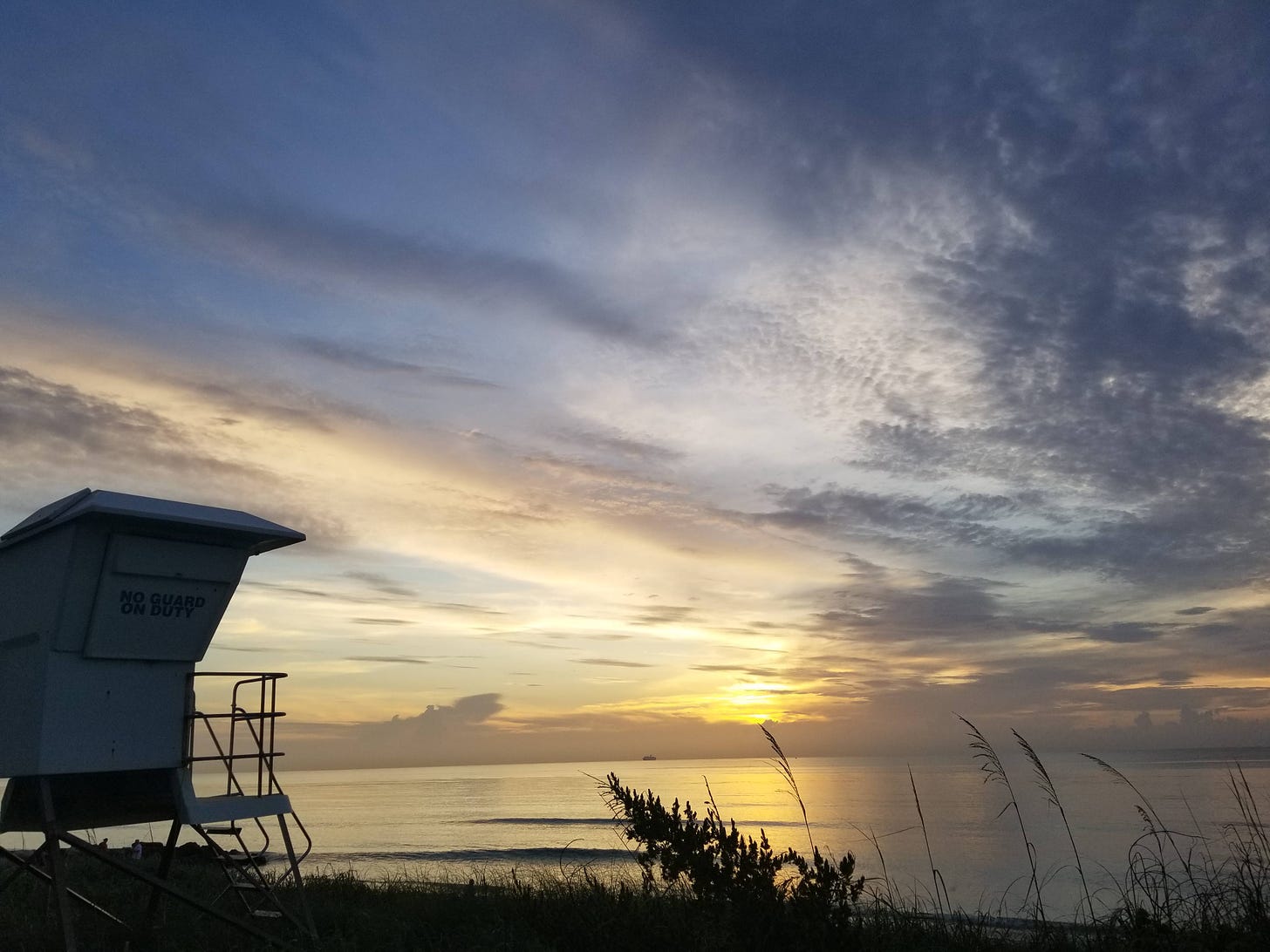Driving to the Danger
Extreme sports have taught me that humans are awful at assessing and tolerating risk, and it's turning us into anxious shut-ins.
It was a Crisp Autumn Friday at the Crag
My group stopped bouldering for the evening, resigned to pull off our cramped climbing shoes. We rested our feet on the dusty ground, and watched the setting sun bathe the valley in an amber glow.
My friend’s dog kept a look-out for other climbers and animals approaching our position. After our first collective round of hard seltzer1, one friend brought up the concept of risk.
“We come up here with all the gear. We spot each other. But still, don’t you ever wonder?” She asked. “I mean, how safe is it?”
We lounged on the improvised rock chairs that long since broke off from the rest of the slab, thinking. A gentle breeze swept through, twisting the flame-orange trees below our ledge.
“Not really,” someone else broke the silence. “Think of all the other stuff we do every day. I bet the most dangerous part of climbing is driving to the crag.” The hum of far-off cars drifted up the canyon, as if to punctuate her point.
She was right, of course. That’s not to say climbing should be taken lightly. Nor driving for that matter. But only one of those two activities is widely normalized, and we humans tend to feel safe in our routines.
Cole’s Climb is supported by readers. Subscriptions are free, help me grow this publication, and make it easier to efficiently provide you with the best content possible.
Risk in Practice
A few months later at the height of ski season, I rode the chairlift with a stranger. I don’t remember much about her, mostly because I couldn’t see anything. Snow fell hard. Lift poles, cables, and chairs, seemed to float in a white void. Ground and sky were indistinguishable. I could hear riders and skiers braking, turning, and hollering below, but could not see them.
I do remember my chair-mate being a nurse. We got to talking about our respective skill levels, how she felt uncomfortable pushing herself into expert territory.
“It’s not about experience,” she explained. “I just know what can happen to you. I’ve seen the worst-case-scenarios.”
This isn’t without merit. Again, snow sports are enjoyable, but should be taken with precaution.
Still curious, I asked, “What do you see more of? Ski accidents? Or car crash victims?”
She answered without hesitation. “Car crashes, by far.”
I told her the previous story from the crag. And after a moment of consideration, she nodded her head in agreement. “Yes,” she said, “The most dangerous part of skiing probably is the drive to the mountain.”
Abnormal Danger
During our lift ride, the two of us discussed why humans fret over abnormal danger, but passively accept commonplace hazards. We concluded the following:
Humans are infatuated with the shocking and novel
Increased attention creates a perception of increased frequency
Commonplace danger feels mundane and forgettable
Some dangerous activities — such as driving — provide such high utility, it’s almost impossible to exist in society without them
The utility argument interests me the most. It shows despite any handwringing protestations, society demands we place a value on our own lives, and weigh it often.
Hopping in the car to work? You’ve decided it’s worth the small risk, to save yourself a few hours walking.
Trying a new climbing route at the crag? If you don’t value a fun thrill and good workout, you’re probably not willing to incur any risk to experience it.
We’re in a constant state of evaluation, balancing risk against reward. This doesn’t make us Devil-may-care idiots for commuting to the office, enjoying our favorite foods, or going for a relaxing swim.
These things are all a natural part of life. Besides, danger is inescapable; even in your own home where a faulty wire or leaking gas line could spell your demise.
Yet we don’t spend every second cowering before death’s specter.
Everything is Okay Because we say so
Since before you could speak, many of these activities have been heavily incorporated into your world. Someone put a value on those risks for you, and said you’re expected to pay.
In adulthood, everything changes. Overnight we’re expected to make our own assessments. Some take up the task subconsciously. Others, feeling lost, seek out a parental surrogate to tell them what’s worth the danger.
Don’t give up your own agency by deferring those choices to someone else. Absolute safety is impossible. Be smart, and don’t let fear take away your rational thinking.
Beta before beer, you’re in the clear; beer before beta, you’ll fall and hurt yourself. Catchy, I know. Please responsibly enjoy celebration drinks after you’re done climbing.






Oh, but we do cower. Behind masks and “vaccines.” But, this week i was driving my teens home from school, and we saw their friends in another car. There was a teen girl cramped sideways into the hatchback, presumably no seatbelt. The teen driver headbanged for a frenetic moment reminding me that he has some kind of attention deficit and hyperactivity, always noticeable when in his presence. I worried about my ethical concerns: whether the girl in the “trunk” has parents who would wish to be told of the manner in which she is traveling home; whether it’s my place to tell the driver’s parents that he had an overcrowded car, and was changing lanes needlessly and copiously to speed through traffic. I asked my own teens about the dilemma, to which they instructed me: there are some things that are stupid risks to take, and some people are more prone to take them because they perceive it as fun. I realized that maybe people who don’t learn which real thrills are worth taking calculated risks are prone to taking crappy thrills for unknown and unmitigated risk. Is this what we mean when we say “Go outside”? Can the younger generation and all future generations encode a new understanding that we need a slower drip on dopamine than what screens can offer? That we must do the calculations in order to take real risks, mitigated, so that we can truly live, rather than crappy risks that incur low payouts in joy, abandon, expansion, succor, oneness, belonging, worship?